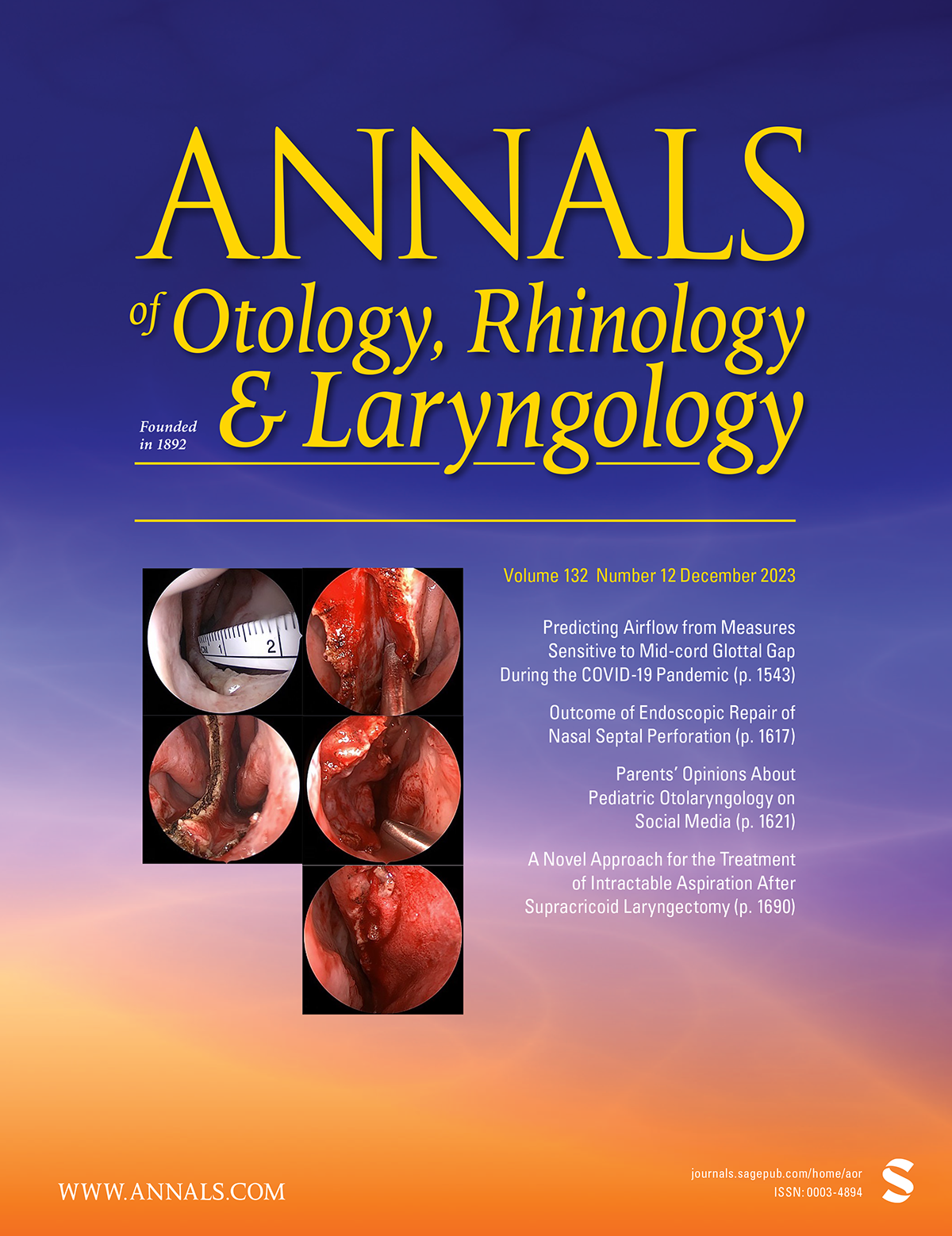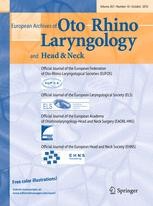Tonsillectomy
How to submit an article:
- Registered users can submit any published journal article that has a unique DOI (Digital Object Identifier) name or link to Research Hub.
- For example, you can paste the full DOI link:
https://doi.org/10.1109/5.771073or just the DOI name:10.1109/5.771073into the field above and click submit. - The person who is first to submit a valid article to Research Hub will forever be credited for it, and every article submission earns you +6 Research Points.
Related Topics
Published research studies are articles that present the findings of original research that has undergone a peer-review process and has been made publicly available in scholarly journals, books or other media.

Honey as a Treatment in Otorhinolaryngology: A Review by Subspecialty
2018 Dec 02 Annals of Otology, Rhinology & Laryngology Tharakan T, Bent J, Tavaluc R
Review Article Tonsillectomy Honey Oral Mucositis Cough tonsillectomy painHoney exhibits efficacy in otolaryngology, supported by high-quality evidence, particularly in preventing oral mucositis in cancer patients, alleviating pediatric cough, and managing post-tonsillectomy pain.

The efficacy of honey for ameliorating pain after tonsillectomy: a meta-analysis
2014 Dec 19 European Archives of Oto-Rhino-Laryngology Hwang SH, Song JN, Jeong YM, Lee YJ, Kang JM
Systematic Review Meta-Analysis Pain relief Honey TonsillectomyAdministering honey postoperatively can significantly lessen pain and foster improved wound healing following tonsillectomy.
Research insights are moderated by the Research Hub team and offer an at-a-glance overview of interesting research findings.

2018 Annals of Otology, Rhinology & Laryngology
Honey exhibits efficacy in otolaryngology, supported by high-quality evidence, particularly in preventing oral mucositis in cancer patients, alleviating pediatric cough, and managing post-tonsillectomy pain.
Review Article Cough Honey Oral Mucositis tonsillectomy pain
Honey as a Treatment in Otorhinolaryngology: A Review by Subspecialty
Tharakan T, Bent J, Tavaluc R

2014 European Archives of Oto-Rhino-Laryngology
Administering honey postoperatively can significantly lessen pain and foster improved wound healing following tonsillectomy.
Systematic Review Honey Pain relief
The efficacy of honey for ameliorating pain after tonsillectomy: a meta-analysis
Hwang SH, Song JN, Jeong YM, Lee YJ, Kang JM
Review Articles
Review articles summarise and critically evaluate the current state of research on a specific topic or field by synthesising multiple primary research studies.

Honey as a Treatment in Otorhinolaryngology: A Review by Subspecialty
2018 Dec 02 Annals of Otology, Rhinology & Laryngology Tharakan T, Bent J, Tavaluc R
Review Article Tonsillectomy Honey Oral Mucositis Cough tonsillectomy painHoney exhibits efficacy in otolaryngology, supported by high-quality evidence, particularly in preventing oral mucositis in cancer patients, alleviating pediatric cough, and managing post-tonsillectomy pain.

The efficacy of honey for ameliorating pain after tonsillectomy: a meta-analysis
2014 Dec 19 European Archives of Oto-Rhino-Laryngology Hwang SH, Song JN, Jeong YM, Lee YJ, Kang JM
Systematic Review Meta-Analysis Pain relief Honey TonsillectomyAdministering honey postoperatively can significantly lessen pain and foster improved wound healing following tonsillectomy.
Clinical Trials
Clinical trials are research studies that involve people and are conducted to evaluate the safety and efficacy of new treatments or interventions, such as drugs, medical devices, or behavioural therapies.
Study Protocols
Published study protocols are detailed plans that outline the objectives, methodology, statistical analyses, and organisation of a research study that have been made publicly available for others to review and use as a reference.
Presentation Slides

Review Article
Honey exhibits efficacy in otolaryngology, supported by high-quality evidence, particularly in preventing oral mucositis in cancer patients, alleviating pediatric cough, and managing post-tonsillectomy pain.
Tharakan T, Bent J, Tavaluc R

Systematic Review
Administering honey postoperatively can significantly lessen pain and foster improved wound healing following tonsillectomy.
Hwang SH, Song JN, Jeong YM, Lee YJ, Kang JM
Executive Summary
Write an executive summary in the form of a blog article on the topic of "Research into Chinese medicine treatment for Tonsillectomy" summarising the research below and using language that can be easily understood by patients and avoiding medical jargon using a professional and caring tone of voice.
Write an executive summary in the form of a blog article on the topic of "Researched Chinese medicine treatments for Tonsillectomy" summarising the research below in an objective and easy to understand way, and using language that can be easily understood by patients. Group the article into Chinese medicine treatments first, followed by nutrition and other treatments. Avoid using medical jargon and use a professional and caring tone of voice.
Write me a concise but easy to understand executive summary on the topic of "Chinese medicine treatments for Tonsillectomy" based on the following research that I will give you. Your summary should be 2 paragraphs long in Australian English spelling and include references to the studies.
A Review Article published in 2018 in the journal Annals of Otology, Rhinology & Laryngology found that Honey exhibits efficacy in otolaryngology, supported by high-quality evidence, particularly in preventing oral mucositis in cancer patients, alleviating pediatric cough, and managing post-tonsillectomy pain. The research involved a comprehensive review of 63 studies across diverse otolaryngology subspecialties. A literature search encompassed PubMed, EMBASE, and Cochrane databases. The studies comprised meta-analyses, randomized control trials, case reports, and animal/in vitro models. Notably, Level 1 evidence predominated, affirming honey's effectiveness in areas such as head and neck surgery, pediatrics, and rhinology. Specific applications include oral mucositis prevention, pediatric cough relief, and post-tonsillectomy pain control, supported by robust meta-analyses. The potential scope for honey in otolaryngology extends beyond current validated uses, suggesting avenues for future exploration.
A Systematic Review published in 2014 in the journal European Archives of Oto-Rhino-Laryngology found that Administering honey postoperatively can significantly lessen pain and foster improved wound healing following tonsillectomy. The methodology for this research consisted of an in-depth systematic review, complemented by a meta-analysis, focused on the effectiveness of honey used as a treatment for postoperative pain and wound healing following tonsillectomy. Following the independent exploration of database records, including MEDLINE, SCOPUS, and Cochrane databases, by two authors, studies that compared postoperative oral administration of honey to placebo were pinpointed, with the outcomes of interest being pain and wound healing on post-operative days. Criteria for data extraction included baseline study characteristics, study quality, patient numbers in honey-treated and control groups, and outcomes of treatment. Across the selected 4 trials, a total of 264 patients provided sufficient data for conducting the meta-analysis. Discussion of the research findings revealed that the honey-treated group experienced a significant decrease in pain during postoperative day 1, in comparison to the placebo-treated group, as rated by patient-reported pain scores. The analgesic intake for the honey-treated group during the first five days after the operation was also markedly reduced compared to that of the placebo-treated group. Moreover, significantly enhanced wound healing was observed two weeks post-operation for the patients treated with honey compared to those given a placebo.
Moderation Tools
Topic
Sign In
Users not signed in are limited to viewing the 5 most recent items of content.